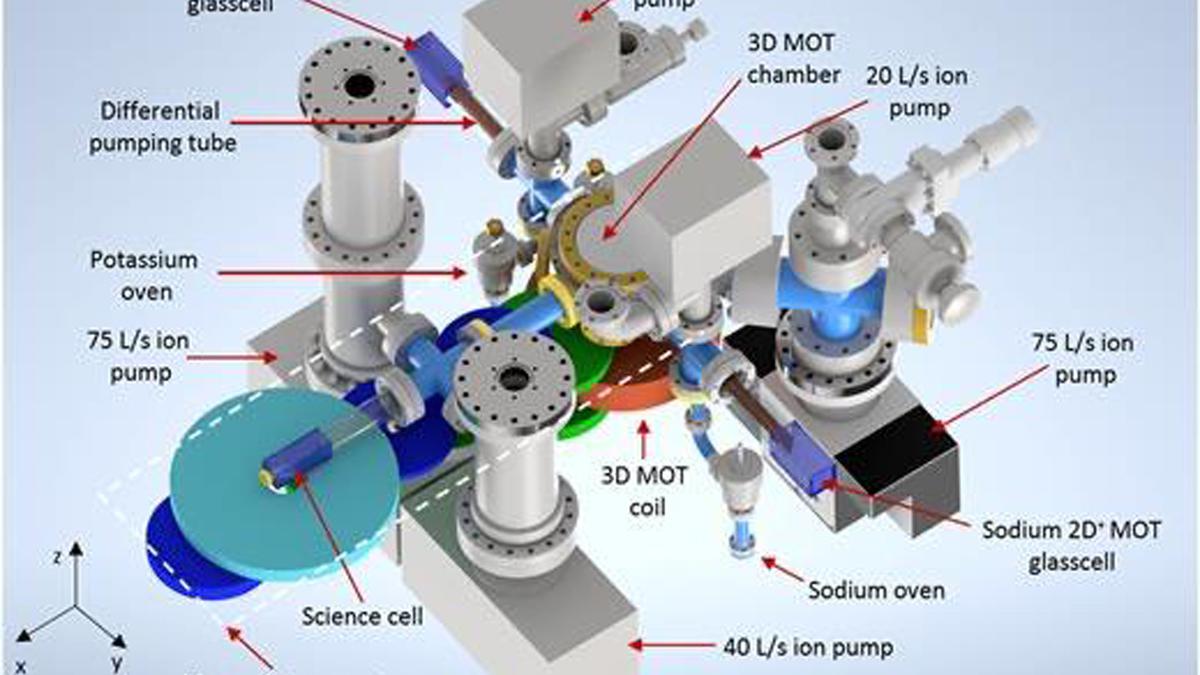
RRI scientists develop experimental facility to help deepen knowledge in quantum technologies
The Hindu
Scientists at the Raman Research Institute (RRI) have indigenously built an experimental facility to simultaneously cool and trap a large number of sodium and potassium atoms near absolute zero temperatures using laser light and magnetic fields.
Scientists at the Raman Research Institute (RRI) have indigenously built an experimental facility to simultaneously cool and trap a large number of sodium and potassium atoms near absolute zero temperatures using laser light and magnetic fields.
With this, RRI said that it has joined the handful of laboratories globally to demonstrate such efficient simultaneous production of a mixture of two species of ultra-cold neutral atoms with inter-species interactions control.
Results from this experiment can deepen the knowledge required for developing quantum technologies such as quantum computing, quantum sensing and metrology, all of which are the frontier areas of research, RRI said.
Built over a period of five years, this specialised experimental facility comprises four interconnected ultra-high vacuum chambers, where atoms are trapped and cooled under a pressure to the tune of 10-11 millibar (equal to 14 orders lower than the normal atmospheric pressure).
There are multiple intricate laser systems, optical arrangements, and high-resolution detections systems. Using techniques of flashing light onto the atoms, the researchers said that it was possible to manipulate properties of atoms and use it for taking various measurements that are fundamentally quantum mechanical in nature.
“Using a combination of light and magnetic field, we attempted to cool and trap a large number of sodium and potassium atoms from their mixture at near absolute zero temperature (in micro Kelvin). As the behaviour of atoms is different at such low temperatures in comparison to the atoms at room temperatures, we wanted to understand their quantum co-relations,” said Saptarishi Chaudhuri from the Quantum Mixtures Laboratory (QuMix), who led the latest experimental research.

We know birds, animals and insects constantly communicate with each other by making certain sounds. But when we think about plants, we do not ever think of them communicating. Charles Darwin, an eminent biologist, thought otherwise. Plants might appear the quiet, silent and solitary type of organisms but they have a complex way of communicating which is interesting and important for their survival.

Podcasts have become our best friends, especially during the Covid-19 pandemic. Whether you are cooking, sketching or going on an evening walk, there is a show that matches your mood. From horror tales to informative conversations to just two friends talking about anything & everything relatable, podcasts have become a part of our lives unknowingly. Over the years, more voices have joined this audio landscape and filled it with stories that resonate with our lives. Podcasts serve as a reminder that everyone has a story worth telling and listening to!









